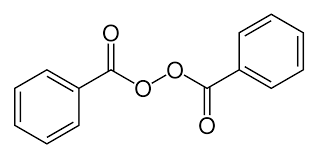Noven Pharmaceuticals, Inc., awholly-ownedsubsidiary of Hisamitsu Pharmaceutical Co., Inc., today announced that the U.S. Food and Drug Administration (FDA) has approved Xelstrym (dextroamphetamine) transdermal system, CII, for the treatment of Attention-Deficit/Hyperactivity Disorder (ADHD) for adults and pediatric patients 6 years and older.1 Xelstrym is the first-and-only FDA-approved transdermal amphetamine patch.
The efficacy and safety of Xelstrym for the treatment of ADHD in pediatric patients 6 to 17 years was evaluated in a multi-center, randomized, double-blind,placebo-controlled,cross-over design, modified analog classroom study. The primary efficacy endpoint was observed as measured by the Swanson, Kotkin, Agler, M-Flynn, and Pelham Scale (SKAMP) total score demonstrating a significant separation from placebo with the use of Xelstrym. The most common adverse reactions (incidence ≥2% and greater than the rate for placebo) in pediatric patients 6 to 17 years treated with Xelstrym were decreased appetite, headache, insomnia, tic, abdominal pain, vomiting, nausea, irritability, blood pressure increased, and heart rate increased. The efficacy and safety of Xelstrym in adults was based on the comparable Xelstrym pharmacokinetic profile in adults and children, and the established bridge to adequate and well- controlled studies of lisdexamfetamine.
"The availability of Xelstrym underscores the need for a non-oral amphetamine treatment for ADHD," said Greg Mattingly, MD, Associate Clinical Professor of Psychiatry at The Washington University School of Medicine in St. Louis, Missouri. "As a once-daily transdermal patch, Xelstrym provides clinicians and their patients, many with varying daily schedules, the ability to share in the decision making process of determining when to apply and subsequently, when to remove the patch to optimize the desired benefit of individualized treatment."
Xelstrym should be applied 2 hours before an effect is needed and removed within 9 hours after application. Dose titration and final dosage should be individualized depending on clinical response and tolerability. Xelstrym will be available in dosage strengths of 4.5 mg/9 hours, 9 mg/9 hours, 13.5 mg/9 hours and 18 mg/9 hours.1
"FDA's approval of Xelstrym provides people living with ADHD a new option to manage a medication schedule that fits their individual lifestyle," said Joel Lippman, M.D., Chief Operating Officer and Chief Medical Officer, Noven Pharmaceuticals, Inc. "As the first amphetamine transdermal patch available for the treatment of ADHD in adults and pediatrics, this is a significant milestone for Noven and our goal of offering new options for clinicians, caregivers and patients for the treatment of ADHD. This approval enables our team to finalize preparations for commercial launch in the U.S. as early as the second half of this year."




